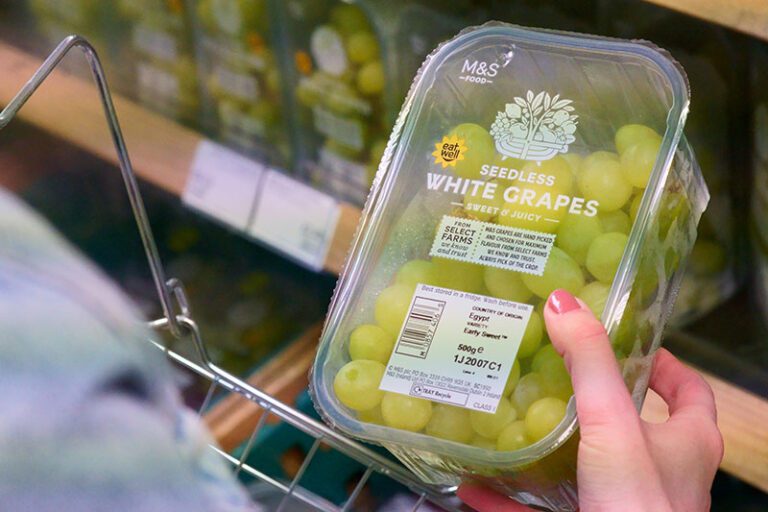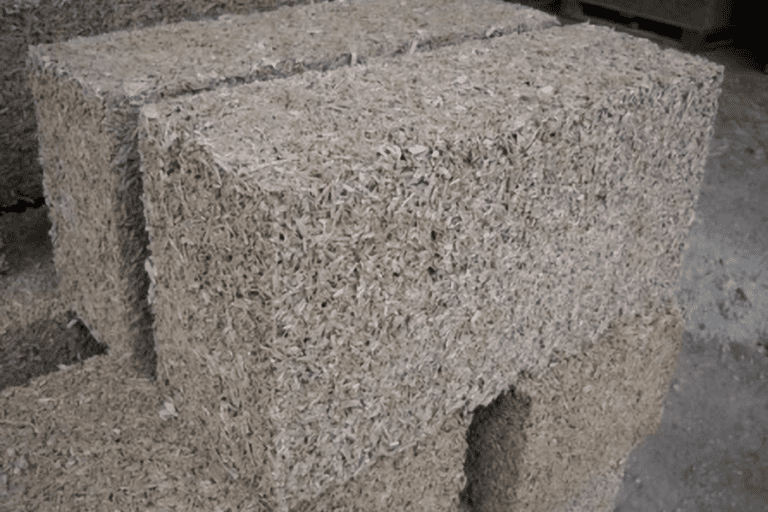
To get your week off to a great start, here are three good news stories from the world of sustainability to give you hope for the future.
From Marks & Spencer removing best-before dates from 85% of its fresh produce, UEFA, Notpla and Just Eat collaborating to deliver better food packaging at Wembley and innovation within the building industry with the creation of Hempcrete.
Our first story focuses on a UK retailer doing its bit for the planet.
To aid in the effort to reduce food waste, Marks & Spencer has taken the novel step of removing best-before dates from a variety of fresh produce.
The company has promised to reduce food waste by half by 2030 as part of its “Plan A” environmental commitment, as well as ensuring that all of its edible surpluses will be redistributed by the year 2025.
The best-before messaging has been removed from the labels of over 300 fruit and vegetable products, changes that will be visible in stores starting last week. This represents 85% of Marks & Spencer’s fresh produce selection.
This includes the most frequently thrown away foods, including apples, potatoes, and broccoli, which, with proper storage and care, can live considerably longer than the best-before advertising dates. The Marks & Spencer team will employ a code in place of dates as an indicator to make sure that products are taken off the shelf as needed.
Marks & Spencer will concentrate on additional steps to deal with food waste and the cost of living crisis in addition to removing best-before dates from products.
The company will continue its relationship with Neighbourly, a B-Corp that provides businesses with the means to have a better impact through the donation of volunteer labour, financial support, and excess stock. Since 2015, Marks & Spencer has provided over 44 million meals via their website.
Mark’s and Spencer’s Director of Food Technology, Andrew Clappen said: “We need to be innovative and ambitious – removing best before dates where safe to do so, trialling new ways to sell our products and galvanising our customers to get creative with leftovers and embrace change.”
Great work from M&S and hopefully, lots more to come.

Our second story takes a look at a super good news story that took place during the UEFA Women’s Final and we aren’t talking about the incredible win our Lionesses gave the country!
As we all know, all large-scale sporting events come with their own environmental footprint.
UEFA said on Friday, July 29, that it had collaborated with Just Eat to introduce seaweed-coated, biodegradable food packaging to all outlets at Wembley Stadium for the event as a means of combating this.
In conjunction with packaging innovation brand Notpla, Just Eat originally introduced the packaging format in 2020 and, since then, it has been put through a UK trial period.
Notpla boxes are constructed of a certified sustainable and recycled cardboard structure.
A seaweed-based nontoxic substitute is then used to make the container more waterproof.
Outside of industrial settings, Notpla claims that the boxes biodegrade in a matter of weeks.
According to Jaz Rabadia, head of responsible business and sustainability at Just Eat Takeaway.com, “Using our global sponsorship partnership with UEFA is a perfect way to showcase this sustainable packaging initiative within the football industry, giving Just Eat the chance to drive and test new innovations with football fans.”
It looks like a win-win to us – the Lionesses carry home the trophy and a record crowd got to use biodegradable packaging through the innovation of Just Eat!

Our final story looks at the building industry and an innovative new use for a material that has been around and used by mankind for millennia – hemp!
Hemp is one of the most sustainable plants since it is a tough, simple-to-grow plant that can regenerate up to three times a year.
It is also one of The strongest natural fibres. Clothing manufactured from hemp has a texture very similar to that of linen and is extremely light yet is ten times stronger than cotton.
Hemp has now been turned into Hempcrete, a plant-based building product made up of hemp fibres, sand and lime.
Hempcrete resists cracking and shrinking and is breathable, light, durable, fireproof, pest-resistant, and long-lasting. It also helps to absorb carbon dioxide during the curing process. Also, during the hemp plant’s life cycle, carbon dioxide is absorbed.
The product comes in two different forms: cast-in-place, which entails utilising form boards to build walls, and pre-cured insulating blocks. Hempcrete, which works well in most climates, is available from Hempitecture and other businesses that have started to produce it.
The construction industry accounts for 40% of global emissions and hempcrete will have a positive impact on this!

Do you want your business to do more for the environment? If so, Play It Green can help. Why not take your first step by filling out the more information form below to contact one of our team?




